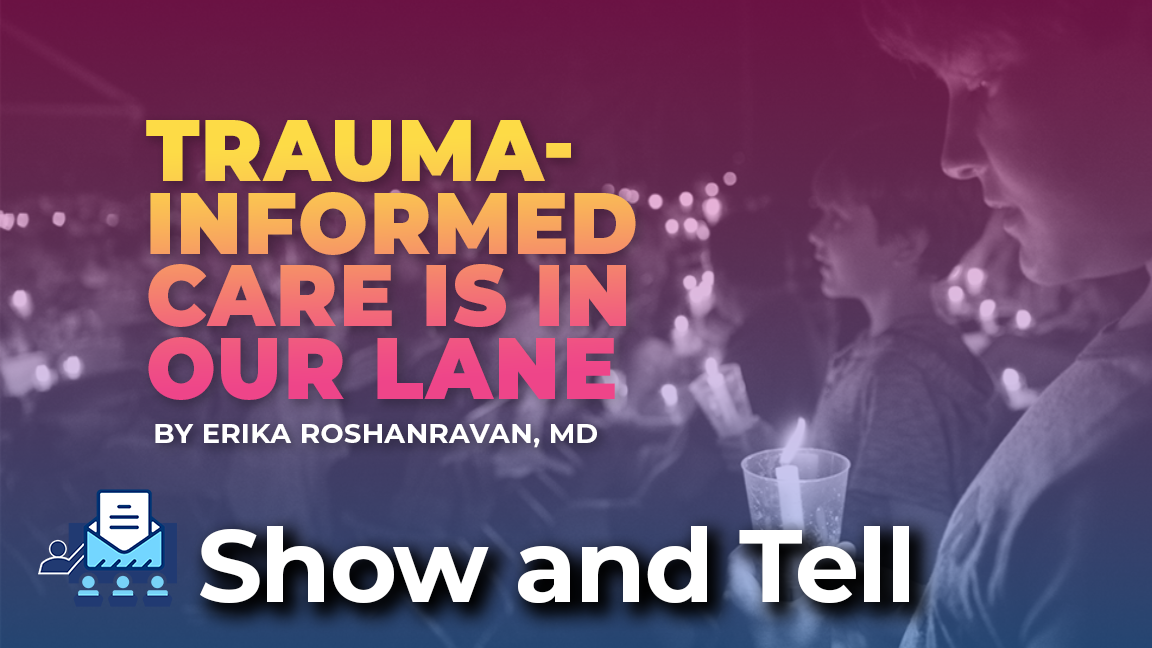
By Erika Roshanravan, MD, FAAFP
Humans are capable of causing immeasurable pain. Humans are also capable of incredible caring, healing, and hard work to make things better. The past month has been another shocking and all-too-common display of violence in our communities, in Monterey Park, in Half Moon Bay, in Memphis and elsewhere. For some, these acts of violence may still feel distant. However, as family physicians, each patient we care for carries their story and their family’s stories into our offices and into our lives. This exponentially increases the likelihood that we witness first-hand how unbearable tragedies affect and often profoundly alter people’s lives. Doing something about it is our lane. Preventing trauma, reducing the effects of adversity, and building resilience is our lane. Spreading knowledge about how toxic stress affects not only our mental, but also our physical health is our lane. Assuming a trauma history in everyone and applying trauma-informed care principles to all (also called “universal precautions”) is our lane.
We are really excited to launch the ABFM Practice Improvement module on trauma-informed, resilience-oriented care, providing patient education about toxic stress and Adverse Childhood Experiences (ACEs). There are many ways we can and need to be involved in reducing violence and trauma and their effects in our communities, and we hope that this PI project can be one tiny piece in this puzzle
For ACEs information and to join the CAFP ABFM PI projectJoin the ACEs go here.